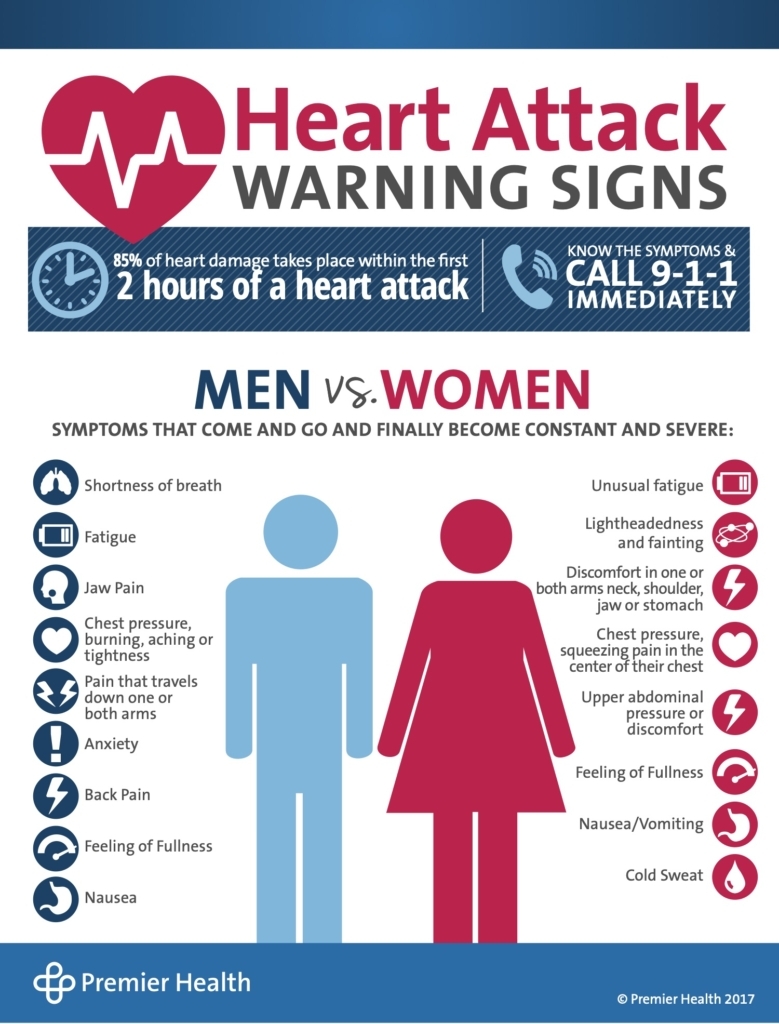What exactly does it feel like to have a heart attack? Below is a graphic that depicts what the symptoms men and women can feel when they are experiencing a heart attack (which doctors term a myocardial infarction or “MI”). I’d like to add a few points to that image:
- The difference in symptoms between men and women should not be taken too strictly. Women will often have “typical” symptoms and many men may have “atypical” symptoms.
- Elderly people are more likely to have a heart attack without sensing chest pain or pressure. In fact, that’s one of the reasons why women frequently have atypical symptoms—they are more likely to have a heart attack at an older age.
- Symptoms of an MI are not always dramatic—just because the discomfort isn’t severe doesn’t mean that it isn’t a heart attack.
- The difference between angina and myocardial infarction may only be a difference in duration. If you have symptoms in the chest region that you can’t confidently attribute to something else, and they last longer than 15-20 minutes, call 911.
- Remember: Time is heart muscle. Delaying care means that more heart muscle dies. Don’t sit at home trying to decide if you are certain your symptoms are from your heart—go to the emergency room and let the doctors there determine that.

Greg Koshkarian, MD, FACC
